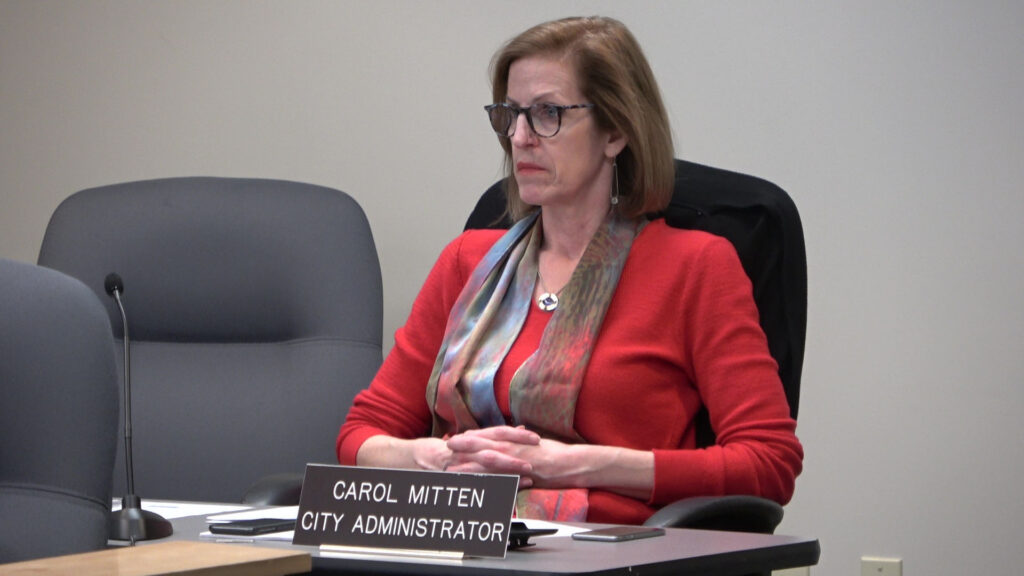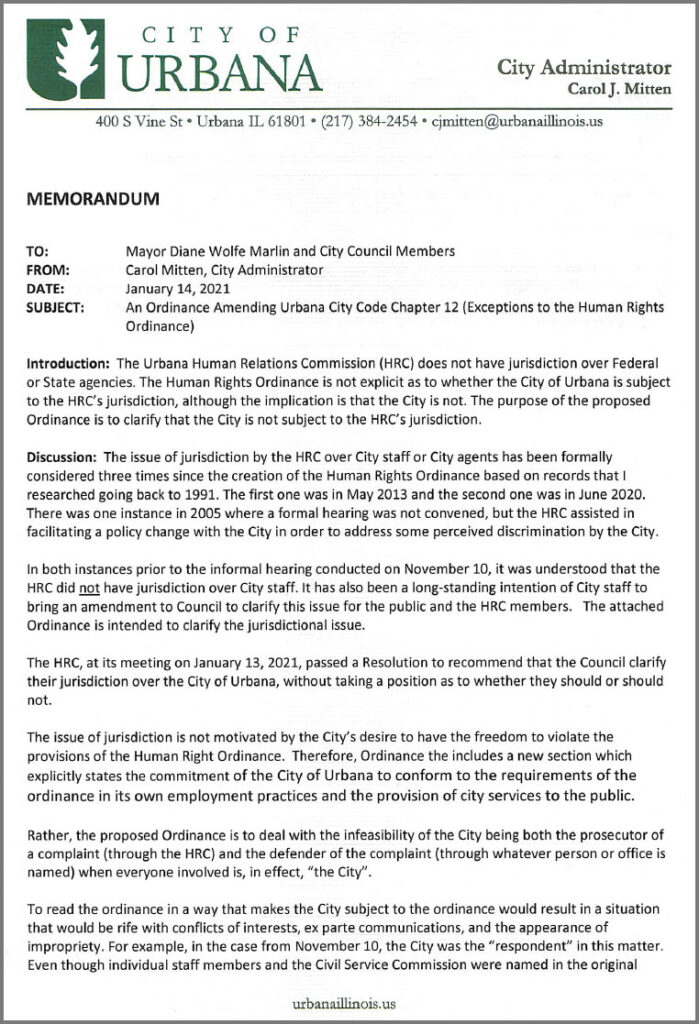
The City of Urbana is once again moving in the opposite direction of the overwhelming public demand for increased equality and accountability. City Administrator Carol Mitten is urging the Council to exempt the City and all of its staff from Urbana’s Human Rights laws.
If Mitten has her way, the Human Rights laws will apply to everyone else in Urbana, but anyone associated with the City will essentially be free to violate them. There will be no mechanism for Urbana residents to engage if they experience discriminatory behavior by City employees, elected officials, or appointed board members.
Mitten’s desire to exempt the City from anti-discrimination laws is a direct response to an Urbana Human Rights hearing on November 10th, 2020 in regards to staff putting discriminatory statements in City of Urbana job listings. The Urbana Civil Service Commission and related Human Resources staff often issue job descriptions which contain requirements to pass criminal background checks, but Urbana’s Human Rights Ordinance clearly makes that illegal.
The City Attorney, James Simon, claimed that the Human Rights Ordinance was not applicable to City hiring practices. His claim was in direct conflict with the plain language of the Ordinance, which lists the duties of the Commission in Section 12-22:
“The commission on human relations shall cooperate with the mayor, city council, city departments, agencies and officials in…maintaining equality of opportunity for employment and advancement in the city government.”
In the hearing, the Urbana Human Relations Commission (HRC) determined that they do have jurisdiction over the City of Urbana, and they unanimously determined that the City’s job listings were discriminatory.
Mitten didn’t care for the outcome of the November 10th hearing, so she wrote a letter to the HRC administratively throwing out the hearing determination, and informed the Commission that she and her staff plan to continue to engage in the same hiring practices which the HRC determined were unlawful.
The Urbana Human Relations Commission has discussed the issue of the City being subject to its own Human Rights laws at their past few meetings. At those meetings, the Commission members have waffled back and forth on including the City in the Ordinance, though 100% of comments from the public at HRC meetings and hearings in the past year have been in favor of holding the City accountable to the same standards expected of private individuals.
At their most recent meeting on January 13th, commission member Peter Resnick brought forth language that would either include or not include the City in the Human Rights Ordinance. The Commission determined that they were “ambivalent”, but eventually passed a motion to bring an ordinance to Council which says that while there is an expectation that the City not discriminate, the City is removed from any type of accountability or formal review.
The proposed change does include language indicating that a concerned resident could bring an incident of discrimination by the City to the attention of the HRC, and that the HRC could then write a report on their findings. However, since the Commission has never been keen on taking any such action on informal complaints, and the City has never been keen on respecting the determinations of their boards and commissions, there is little reason to think that this provision is anything more than flowery language.
Carol Mitten is bringing her recommendation to the Urbana Committee of the Whole Meeting for discussion on January 19th. If the Committee moves it forward, the Council could pass the new legislation at their meeting on January 25th.
Mitten’s “memorandum” and the suggested ordinance changes can be seen here (click for full 5-page PDF):


Automated spelling and grammar checks can soundly slip the editor’s intent. I stumbled on the principle conclusion drawn by this official sentence:
“Therefore, Ordinance the includes a new section which explicitly states the commitment of the City of Urbana to conform to the requirements of the ordinance in its own employment practices and the provision of city services to the public.”